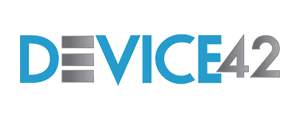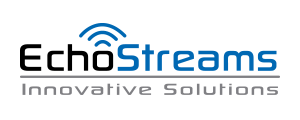Sponsored by Cambridge Computer
Join us on Wednesday, November 1, 2017 at the Hyatt Regency San Francisco for LISA Advanced Concepts in Data Storage Day. This one-day event focuses on current trends in the storage industry. Registration is a free add-on to either LISA17 conference admission or LISA17 Expo-only admission in order to introduce newcomers to the LISA conference. The goal of LISA Data Storage Day is to explain the trends and developments in the storage industry in the language spoken by hands-on IT professionals. Other events tend to glaze over how and why specific products or technologies work, focusing instead on the business value. However, at LISA Data Storage Day, we'll provide a peek under the proverbial hood—making it easier to match technology to business value—creating a unique event that's well worth a day out of the office!
What:
LISA Data Storage Day
Where:
Pacific Concourse BC
When:
Wednesday, November 1, 9:00 am–5:30 pm
Registration
Registration for LISA Data Storage Day is FREE with paid admission to LISA17 or the LISA17 Expo, and includes the Expo Happy Hour, luncheon, coffee breaks, and Wednesday Birds-of-a-Feather sessions (BoFs).
- If you are attending LISA, please select the LISA17 Data Storage Day optional add-on item from within the main LISA17 registration.
- If you are not attending LISA, and you wish to register for Data Storage Day, please register to attend the Expo only, and then select "Data Storage Day" as an optional add-on. Please note there is a $50 charge to register for the Expo unless you have a discount code.
Data Storage Day Agenda
The Evolution of Storage Networking: Blending Object Storage with the Conventional Storage Stack
Jacob Farmer, CTO, Cambridge Computer
Object storage is the latest and greatest trend in storage networking. . . or is it? The reality is that object stores have been around forever, but people are talking about objects as if they were something new, largely because Amazon commercialized an object-based storage service (S3) and lots of other companies are now marketing products based on a similar paradigm. Object stores are, in fact, ubiquitous. They are quietly embedded in the inner working of EVERY system that stores data.
So really, this lecture is not so much about object storage as it is about the ever-evolving storage "stack" that originated decades ago with lowly hard drives and simple file systems, then morphed into modern SAN and NAS solutions, and that will continue to evolve as long there are new challenges to overcome. We begin with a simple definition of object and object store, outline key concepts, and then illustrate different ways to leverage object storage models to achieve new levels of performance, scale, consistency, and resiliency. The concepts are illustrated with real-world examples from commercial and community products.
Lecture Outline
- The evolution of the traditional storage stack - block/SAN and POSIX/NAS
- Storage virtualization
- Object storage concepts
- Object storage for resiliency and scale
- Object storage for performance and scale
- Object storage for locality, consistency, and coherency
- Content addressing and deduplication
- Recipe-based storage
- Big Metadata
- Fine Grained v. Coarse Grained Objects
- Integrating object stores into the traditional storage stack
- Object-based file systems
- File system gateways
- Nesting of object stores
- Jelly beans and Jars
- Nested containers
- Protocol shims
- Federated storage and global namespaces
- Making files behave like objects
- Making objects behave like files
Rolling Your Own Storage: Software Defined Storage and Commodity Hardware for Cloud and Large Scale Workloads
Peter Galvin, Chief Technologist, Infrastructure, Cambridge Computer
The monolithic enterprise storage appliance has been falling out of vogue lately. Storage architects are increasingly looking for "software defined" storage solutions that run on top of commodity hardware as well as "hyper-converged" systems that combine storage and compute resources in the same platform. As an IT architect or buyer, it is is very empowering to buy storage software decoupled from hardware, but. . . . uh. . . someone still has to engineer the hardware!
Yes, you can turn pretty much any computer into a storage device, but there are huge advantages to doing it right. This lecture reveals the major issues to consider when selecting hardware for software defined storage systems. We look at I/O subsystems, backplanes, and the nuances of solid state storage devices. Using CEPH as a case study, we describe various ways to get the most performance and reliability out of your storage hardware.
Lecture Outline
- Defining "Software Defined" Storage
- What does it mean? What should it mean?
- Deconstructing Hyper-convergence
- Storage and compute on the same server, yes or no?
- Pros and cons of scale-out storage architectures
- Virtualizing the storage controller
- Local affinity v. low Latency and parallelism
- NVMe over Fabric
- SSDs - Getting Your Money's Worth
- Leveraging lower cost SSDs
- Eliminating hidden bottlenecks in the storage I/O path
- Averting write-amplification
- Commodity Hardware Concepts
- COTS
- Backplanes and PCIe lanes
- Power, cooling, and vibration
- Controlling the supply chain
- CEPH Case Study -- Maximizing CEPH Performance
LISA Data Storage Day Sponsors and Exhibitors
 |
Cambridge Computer specializes in storage networking, data protection, and digital archiving technologies. For nearly twenty years, we have helped our clients identify their needs, devise long-term storage management strategies, and compare technologies from different hardware and software manufacturers. Recommending customized solutions often comes at no cost to our customer. Our professional services include consulting, integration, project management, and knowledge transfer. Our technical expertise is known throughout the storage industry. Our clients include leading corporations, major financial institutions, top universities, the most vital of government facilities, as well as small to medium size businesses. Allow us to apply our creativity to design a solution that meets your budget and exceeds your expectations. |
 |
Cloudian turns information into insight with an infinitely scalable platform that consolidates, manages and protects enterprise data. Cloudian Enterprise Object Storage brings cloud technology and economics to the data center with uncompromising data durability, intuitive management tools and the industry’s most compatible S3 API. Cloudian and its ecosystem partners help Global 1000 customers simplify unstructured data management today, while preparing for the data demands of AI and machine learning tomorrow. Join us on LinkedIn, follow us on Twitter (@CloudianStorage) and Facebook, or visit us at www.cloudian.com. |
 |
Continuous Discovery for your IT Infrastructure. Automatically maintain an up-to-date inventory of your physical, virtual, and cloud servers and containers, network components, software/services/applications, and their inter-relationships and inter-dependencies. |
 |
EchoStreams partners with technology leaders and solution integrators to offer purpose-built solutions to companies who are supporting the world’s IT Infrastructures. EchoStreams’ solution platforms can be found on www.echostreams.com, and fully integrated turnkey solutions can be OEM’ed through qualified integrators and value-add distributors listed on our website. |
 |
Micron is a global leader in semiconductor systems. Our portfolio of memory technologies, including DRAM and Flash, is the basis for solid state drives, modules and other storage solutions. We enable customers to be in command of their business and protect their most critical asset–data." |
 |
RackTop’s Software Defined Storage goes beyond high performance storage. It is the only solution with embedded cybersecurity and a policy based approach for the most uncompromising compliance and security requirements. Easy-to-use, automated UX enables organizational agility with centralized governance and user self-service. |
 |
Starfish is a metadata and rules management framework for large-scale file systems. It supports billions of file and petabytes of capacity. Starfish provides vital insights into your file systems while automating the life cycle of research data from creation through archiving and re-use. |
 |
WekaIO leapfrogs legacy infrastructures and improves IT agility by delivering faster access to data and application acceleration through software-centric data storage solutions that unlock the true promise of the cloud. WekaIO Matrix™ software is ideally suited for performance intensive workloads such as deep learning and analytics, and life sciences research. |